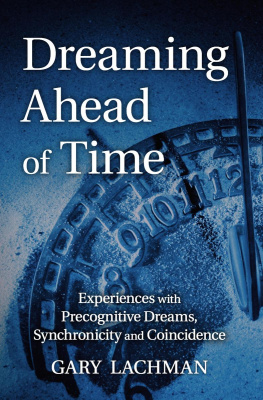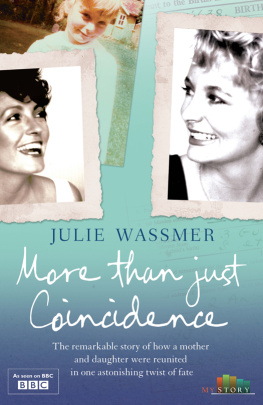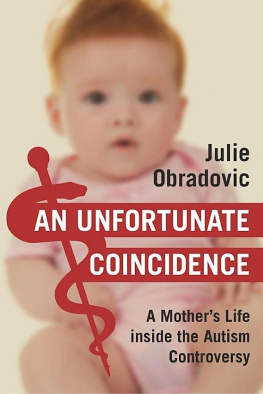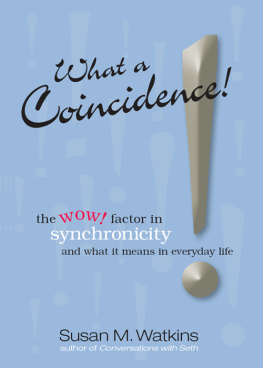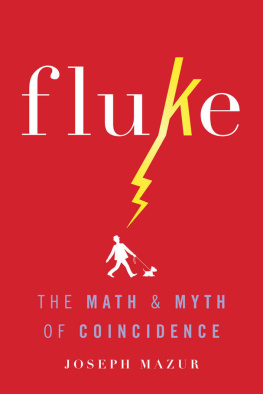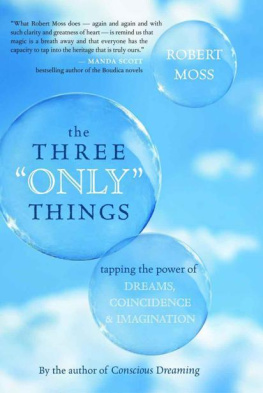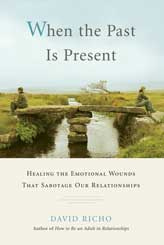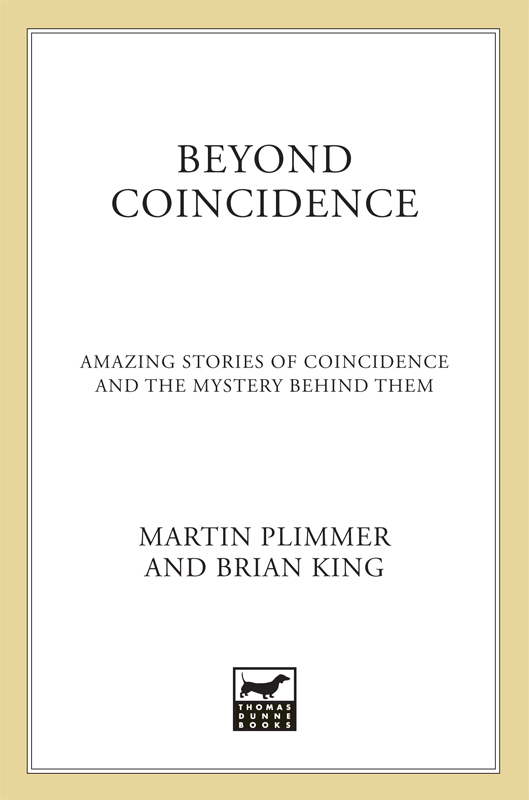
The author and publisher have provided this e-book to you for your personal use only. You may not make this e-book publicly available in any way. Copyright infringement is against the law. If you believe the copy of this e-book you are reading infringes on the authors copyright, please notify the publisher at: us.macmillanusa.com/piracy.
Contents
1:
2:
3:
4:
5:
6:
7:
1:
2:
3:
4:
5:
6:
7:
8:
9:
10:
11:
12:
13:
14:
15:
16:
To the memory of
PETER RODFORD
who, coincidentally,
taught us both
Any coincidence, said Miss Marple to herself, is always worth noting. You can throw it away later if it is only a coincidence.
AGATHA CHRISTIE
One
C OINCIDENCE U NDER THE M ICROSCOPE
THE COSMIC YES!
I know weve met before.
Lets talk. Im sure well find things in commonbroad strokes first: language, race, nationality, gender, front door color, love of Italian food, the desire to jump in puddles this book!
Soon well narrow the focus: places we have both visited, times we have nearly met, events at which we were separated only by people we didnt know, people we know in common.
The more we look the more well find. Before long well discover we have lived in the same town, or attended the same school, were born in the same hospital, had the same accountant, the identical dream. Perhaps we traveled on a bus togetherperhaps we have rubbed shoulders on a bus!
The idea makes us shiver. Why? Does it mean anything? Not objectively. After all, we rub shoulders with strangers on buses every week and it doesnt make us shiver.
But now we are no longer strangers. And now, knowing each other, we can see that we have always known each other. If, after this meeting, we become friends, we will think those former meetings and almost meetings very significant indeed. We will call them coincidences, but we will think them more than that. The trick of being personal is in the nature of coincidence. It is always particular, always subjective, always to do with us. Fate has singled us out. You and me. Its that specialness that makes us shiver.
We all do this, especially if we want to like each other. We frisk each other for links. Were like synchronized swimmers in search of a routine. We relish connections, and were a highly connected species. If it were possible to map all human activity, drawing lines between friends and relatives, departures and arrivals, messages sent and received, desires and objects, you would soon have a planet-size tangle of lines, growing ever denser, with trillions of intersections.
Each intersection is an association waiting to be noticed as a coincidence, either for its own sake or when yet another intersecting line passes through it. Coincidence is commonplace. Its everywhere. But we are only aware of those intersections that are meaningful to us. Paul Kammerer, an Austrian biologist of the early nineteenth century, said that these are manifestations of a much larger cosmic unity, a force as powerful as gravity, but that acts selectively, bringing things together by affinity. We only notice its peaks, which are like the ripples on the surface of a pond.
Just what this force affecting us all might be, we dont know. Suggestions include a higher universal intelligence, gods and aliens (both mischievous and benign), a psychomagnetic field, the controlling power of our own thoughts, or a universal system of parallel universes operating in different dimensions from ours. Thats easy to say, hard to understand, and impossible to prove.
Back on the ground, all that most of us are aware of when we notice a coincidence is that it provokes one of those shivers. It might be just a tremor of the imagination, but the more unlikely the coincidence, the more the sensation of invisible fingers running down the back.
Bolt-from-the-blue coincidences involving events or material objectslike bumping into a long-lost friend in a foreign town, or finding a toy in a yard sale that you once owned as a childcan move even the most skeptical in ways that are difficult to define.
What is it about coincidences that grabs at the emotions? Its the frisson of being touched by something outside of yourself. Its a sense of being chosen. One minute you are stumbling through quotidian chaos, trying to find a phone that is ringing or maneuvre a stroller up the stairs of a bus, the next you are in a lacuna of clarity, where every disparate thingevents, objects, your own thought processesappears to be bent to the same end. For a second the suspicion that you are tiny and insignificant, and the Universe arbitrary and terrifying, disappears. You are part of a great cosmic YES!!!
Research has been done suggesting that people who notice coincidences most tend to be more confident and at ease with life. Every coincidence they experienceeven the minor onesconfirms their optimism. They know that things will happen to them, that somewhere in a second-hand Tijuana bookshop there is likely to be the one remaining signed copy of their fathers only novel, that in an apartment in Hong Kong, waiting to be found, very likely lives the sister they have not been told about, that the signet ring they lost in Chicago is sitting right now on the bottom of Lake Michigan awaiting the astonished anglers casual hook. They are routinely alert to coincidence, certain that at any moment, in the raffle of infinite possibilities, their lucky number will be called. For these people the world really is a smaller place.
Lets think about that book in Tijuana for a second. Lets say it was written by my father. If you came across it as you were browsing books, you wouldnt think anything of it; after all, rare bookshops are full of rare booksits in their nature. But if I were to find that book, open it and recognize the signature of my late father, carelessly scrawled there when he was a younger man than me, with the world and all its manifold possibilities lying at his feet, the experience would be loaded with poignant significance. Just what it signified exactly, I would be hard pressed to explain, nevertheless my world would look very different from what it had looked like a few moments before. I might even have to sit down.
Laurens van der Post says in his book, Jung and the Story of Our Time (about Carl Jung, the Swiss psychologist who defined the concept of synchronicity), Coincidences, instinctively, have never been idle for me, but as meaningful, I was to find, as they were to Jung. I had always had a hunch that coincidences were a manifestation of a law of life of which we are inadequately aware [Coincidences], in terms of our short life, are unfortunately incapable of total definition, and yet, however partial the meaning we can extract from them, we ignore them at our peril.
We know that coincidences are events, objects, and thoughts slung together by the winda matter of pure chancebut because they resonate so intimately we think them more than that. Whos to say, when the coincidence has a profound effect on our lives, that we are wrong? Look at what happened to the English Woman Margaret Muir.
During the Second World War when she was living in Cairo, Margaret Muir befriended a serviceman who was stationed there. It was one of those friendships that so easily could have become more, but both of them were married, so they decided that was that. After the war they only saw each other every two years, over lunch at the Guards Club, to catch up on each others lives. They were still attracted to each other, but now they both had families.


